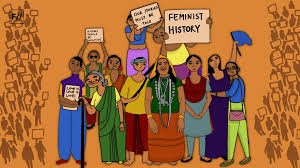Arshad Mahmood Awan
English Language Day is an annual celebration held on April 23 at the United Nations, honouring the renowned playwright William Shakespeare. This date is significant as it is both his birthday and death anniversary. Shakespeare is widely considered to be one of the most influential writers in the English language, having made significant contributions to modern-day English. He created new words and phrases like ‘gossip’, ‘fashionable’, and ‘lonely,’ and popularized expressions like ‘break the ice,’ ‘faint-hearted,’ and ‘love is blind.’
English, a language spoken by over 1.5 billion people worldwide, plays a pivotal role in international communication, serving as a key tool for diplomacy and global cooperation. At the United Nations, English is one of the two working languages, used for official meetings, conferences, and documents, alongside French. For instance, all official UN documents are translated into English, and simultaneous interpretation is provided in English for all major meetings and conferences.
The UN’s Department of Global Communications launched the Language Days initiative in 2010. This initiative established language days for each of the six official languages of the UN to celebrate multilingualism and cultural diversity and promote the equal use of all six languages throughout the organization. Each language has a specific day dedicated to it, and the celebrations aim to entertain and inform the UN community about each language’s history, culture, and achievements.
Multilingualism, a cornerstone of the United Nations, is a testament to its commitment to cultural diversity and inclusivity. It fosters harmonious communication and promotes tolerance, understanding, and respect for linguistic diversity. It ensures the effective and increased participation of all in the organization’s work, enhancing its effectiveness, outcomes, and involvement. The UN has undertaken numerous activities to promote the use of its official languages and ensure that its goals and actions are understood by the widest possible public. In 1999, the General Assembly invited the appointment of a senior Secretariat official to serve as a coordinator of questions relating to multilingualism.
English Language Day is a crucial event celebrated annually on April 23 at the United Nations. The day commemorates the renowned playwright William Shakespeare, who is one of the most influential writers in the English language. It is both Shakespeare’s birthday and death anniversary, and the day is observed to promote the use of the English language as a tool for diplomacy, global cooperation, and cultural exchange.
With over 1.5 billion people worldwide speaking English, it is one of the most widely spoken languages globally. It is the language of science, technology, and international commerce. At the United Nations, English is one of the two working languages used for official meetings, conferences, and documents, alongside French. The celebration of English Language Day highlights the importance of the language in international communication and promotes its use as a means of understanding and cooperation between nations.
Shakespeare significantly influenced the English language, creating new words and phrases that are still in use today. His contributions are not just in the form of words, but also in the way he used language to express complex emotions and ideas. For instance, he coined words like ‘gossip,’ ‘fashionable,’ and ‘lonely’ and popularized expressions like ‘break the ice,’ ‘faint-hearted,’ and ‘love is blind.’ These words and expressions have become an integral part of the English language, and his works continue to be studied and celebrated for their linguistic richness and cultural significance.
The United Nations Department of Global Communications launched the Language Days initiative in 2010, which established language days for each of the UN’s six official languages. The initiative has been instrumental in promoting cultural diversity, multilingualism, and equal use of all six languages throughout the organization. Each language has a specific day dedicated to it, and the celebrations are not just about entertainment, but also about providing a platform to inform the UN community about each language’s history, culture, and achievements. The initiative has also led to increased awareness and appreciation of linguistic diversity within the UN and beyond.
In conclusion, celebrating English Language Day is essential in promoting the language as a tool for cross-cultural understanding and global cooperation. It highlights the vital role of English in international communication, science, technology, and education. Shakespeare’s contributions to the English language are significant, and the day commemorates his legacy. The celebration of English Language Day promotes multilingualism, cultural diversity, and peaceful coexistence, all essential for building a better world.
















